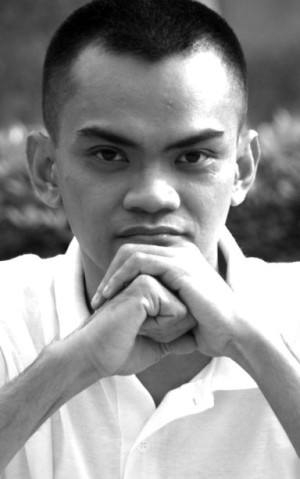
PAREDES
Learning from history, Duterte understands the importance of war in ensuring public support for his claims to eradicating criminality and terrorism.
The first year of President Rodrigo Duterte’s administration was rocked by various controversies, such as his granting of a hero’s burial for the former dictator Ferdinand Marcos, the accusations of massive extrajudicial killings in the anti-drug campaign, the increasing Chinese occupation and militarization of our islands in the West Philippine Sea, and his own lack of tact in speeches that have offended many people here and abroad.
These issues polarized the nation and led a lot of his former supporters to disillusionment.
Yet, in spite of these controversies, the President’s war on drugs has remained popular.
And there was yet another issue that made him pull it through: The sudden outbreak of terrorist attack in Marawi.
Alongside the war on drugs, Duterte now has to wage another massive war: the war on terrorism.
The administration’s efforts to quash the ISIS -Maute terrorists that invaded Marawi gave Duterte another impetus to ask the Filipinos to unite and back him up.
All other issues were swept under the rug as the public threw its support on the President.
Even the opposition and his left-wing allies expressed support on the military as the Commander-in-Chief rallied the nation in the fight against terrorism.
The administration found a good reason to demand the implementation of Martial Law in Mindanao.
Dissent was weak as revisionist narratives of Martial Law during the 1970s, which painted a “Golden Age” in Philippine history, became popular in the social media.
Fears of the return of military atrocities and human rights violations were largely ignored as most people were willing to give up their liberties if only to grant the administration the iron hand to crush the terrorists.
Duterte demonized human rights in his speeches saying that it stands in the way of the government’s efforts to wipe out criminals and terrorists.
His supporters lauded the killing spree that came in the wake of such statements as a clear act of political will.
Duterte’s two-pronged war on drugs and terrorism strengthened the narrative that this nation needs a strong leader to be able to defeat these demons.
In fact, based on his own pronouncements, what this nation really needs is a dictator like Marcos.
Duterte’s continued popularity is proof that many of us are willing to grant him that status at the expense of our own rights and liberties.
Historically, war has always been used to justify authoritarian rule.
The expediencies of war makes it easy for a populist ruler to persuade the public to ignore atrocities committed by the armed authorities purportedly made in legitimate operations against the enemy.
War makes it easy for the Strong Leader to demonize his enemies.
We are seeing this in how Filipinos have become numbed or even glad at the rise of killings conducted almost every day as part of the war on drugs.
We are playing blind to the blatant disregard of due process as those killed were among the dreaded “list” of suspects involved in the drug trade.
Amid obvious cover-ups and denials in the messed up operations, the public supported the police version of the story.
We all wanted to hear such stories as we want to believe that the President’s war is working.
Learning from history, Duterte understands the importance of war in ensuring public support for his claims to eradicating criminality and terrorism.
War is a necessary process of “cleansing.” And, according to this terrifying tale, this nation has to be cleansed with the blood of criminals and terrorists.
This bloodbath is thus conducted with our consent, often expressed in our silence and lack of outrage.